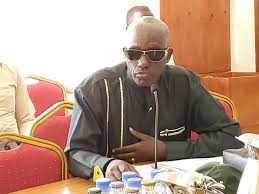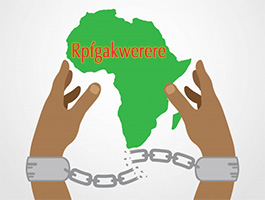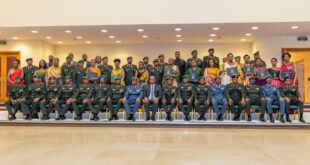By: Prof Charles Kambanda
The Parliament of Uganda appears set to censure the Minister of internal security because he blocked MPs from accessing a safehouse. This should be an interesting Constitutional Law, and National Security Law case.
1. The Commander in chief and Chief Executive, alone, is responsible for tactical and/or strategic intelligence collection. The global war on terrorism has made Safe houses a common phenomenon in National Security Law. In some cases, security agents use safe houses to violate people’s Constitutional rights and freedoms.
Safe houses are, by definition, secret, unknown and ungazetted premises, which the Executive may use to conduct clandestine observations, collection of tactical and/or strategic intelligence, etc.
The commander in chief and Chief Executive determines (discretionary power) the type of intelligence collected, from where and who collects the relevant intelligence, under Separation of Powers Doctrine. Any “fight” over these issues, between the political branches of government (the Executive and Legislature), triggers Separation of Powers and/or political question Doctrine issues.

2. (i) Does Parliament, in a Constitutional Supremacy Jurisdiction like Uganda, have Constitutional Power to inspect safe houses?
(ii) What happens if the Executive uses safehouses to violate people’s rights?
3. Legislative Oversight power is not magical, abstract or an empty class, constitutional power, that allows Parliament to oversee, command or otherwise micromanage the Executive and the Judiciary.
Oversight power of Parliament is composed of four powers:
(a) Vetting or confirmation of some Executive and Judicial officials
b) Investigative power: Parliament’s power to investigate is implied from it’s explicit power to legislate. Therefore, the investigative power of Parliament is limited to investigations for purposes of making the law. Parliament does not investigate crimes for purposes of prosecuting or otherwise hold anyone criminally liable; this powers vests in the Executive alone.
c) Censuring (impeachment of) some Executive and Judicial officials.
d) Appropriations and budget processes.
There are specific tool Parliament uses to execute its Oversight powers, namely: hearings, committee activities, inquiries, interpellations, questionnaire, compelling production of documents (subpoena) if no Executive privilege applies.
Parliament must evoke specific constitutional power for anything they do, under Oversight. Oversight power of Parliament is not a blank check/cheque for Pariament to do anything.
* Which oversight power was the Parliament (the committee) exercising when they went to inspect safe houses?
* Which tool were the MP using, when they showed up to inspect safehouses?
* Do Uganda MPs confuse Oversight powers of Parliament with the ordinary English meaning of “oversight”, the synonym of the verb to oversee or to control?
4. I am concerned that sone MPs in Uganda unreasonably thinks that they have the power to do everything the United Kingdom Legislature can do in the UK. This is wrong assumption. The UK is a Parliamentary Supremacy Jurisdiction. Therefore, the UK Parliament is the creator, of the Executive. The Legislature, literally, foresees, controls and manages the Executive. The UK Legislature can terminate the Executive for any or no reason, at any time. Uganda is not a Parliamentary Supremacy Jurisdiction. Uganda is a Constitutional Supremacy Country; the Executive is independent; the Chief Executive represents his voters and the entire country, the same way MPs represent their constituents.
5. If the Executive uses safe houses to violate people’s rights, to the extent this is “occupied space” for the Executive under Separation of powers Doctrine, there are a couple of alternatives:
i) MPs are free to take the issue of Safehouse to the voters to decide, remove the Gov through elections. Make safe houses an election issue.
(ii) Remove the government through unconstitutional means and create a new legal order (refer to the Kelsen theory of positive law). Of course there is a price tag to this option.
(iii) the victims of safehouse abuses may take the fight to Courts. Of course, no sober court would order the Executive to close safehouses (refer to Marbury v Madison).
6. I would love to know the specific power MPs evoked to justify their unannounced visit to “inspect” safehouses. It would have been different if the MPs used their appropriations power to negotiate with the Executive for such a visit. However, the Legislature cannot use any of its constitutional powers, much less oversight, to arm twist the Executive or the Judiciary, in violation of Separation of powers Doctrine, not in a Constitutional Supremacy country like Uganda.
Do I condone or otherwise defend torture or other State crimes? Surely no.
 Africa Just another WordPress site
Africa Just another WordPress site


